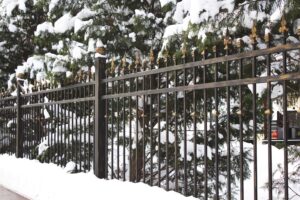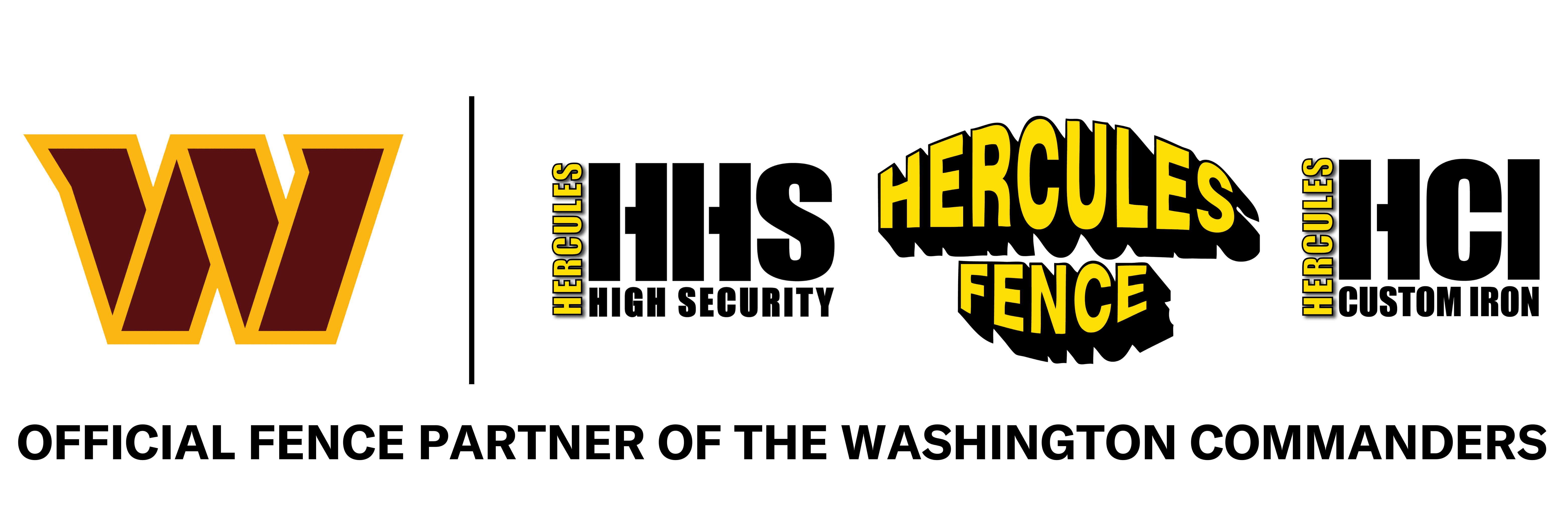
We’re here to explain how the cast and wrought iron fencing differ.
When many people think of “cast iron,” they associate it with cooking. Like a cast-iron pot or pan, a cast-iron fence is also durable. However, when people think of “iron” fencing, wrought iron is more likely to come to mind. So, what’s the difference between the two? We’re here to explain how the cast and wrought iron fencing differ.
Cast Iron Defined
Fence manufacturers melt, pour, and mold cast iron, allowing it to cool. It’s a generic term referring to iron alloys, but most commonly, gray iron. In addition, it contains two to four percent carbon and a tiny amount of silicon and manganese.
Typically, cast iron might also consist of sulfur and phosphorus. Cast iron differs from wrought iron because it’s brittle, hard, and non-malleable. Its tensile strength is relatively low but ranks high in compression strength. You can’t bend, stretch, or hammer it into shape.
Wrought Iron Defined
Wrought iron is an iron that manufacturers heat and then work on with tools. “Wrought” is the past participle of the word “work” and primarily consists of one to two percent added slag (the byproduct of smelting ores and used metals). These molten materials are typically a mix of silicon, sulfur, phosphorous, and aluminum oxides.
During manufacturing, manufacturers remove the iron from heat and work on it with a hammer to shape it into its final intended form. Wrought iron’s tensile strength is higher than cast iron, making it the better option for horizontal beams in construction. It resists fatigue and deforms without failing unless you overload it well beyond capacity or it distorts from the intense heat caused by a fire.
A Note About Corrosion
Paint and powder coatings serve as protective measures for metal. Powder coatings, in particular, won’t fade, chip, or crack over a long period. Iron products require a specialized coating to prevent exposure to precipitation and humidity.
So, What’s the Better Option?
Ultimately, wrought iron fencing is the preferred option because of how you can shape it into your desired aesthetic. Additionally, the more you work on it, the stronger it becomes. Cast iron is brittle and could fracture before it bends or distorts.
Contact Hercules Custom Iron today if you’re ready to reap the benefits of a custom iron fence.
HAVE QUESTIONS? ASK HERCULES CUSTOM IRON
If you are ready to install your massive duty iron fence and add iron railings or you still have some more questions, we here at Hercules Custom Iron are here to help. We have many years of experience and will ensure that your chain link fence will serve you and your family for years. Visit us online or call us at 1-800-331-2590. For advice, updates, and to see what we are up to, be sure to follow us on social media on Facebook, Twitter, LinkedIn, YouTube, and Pinterest.


